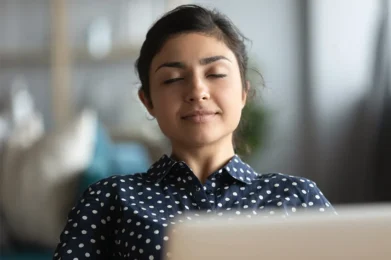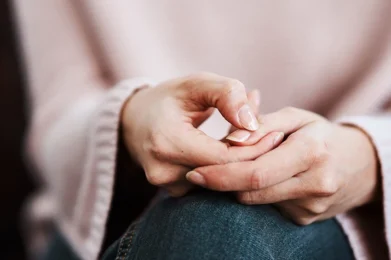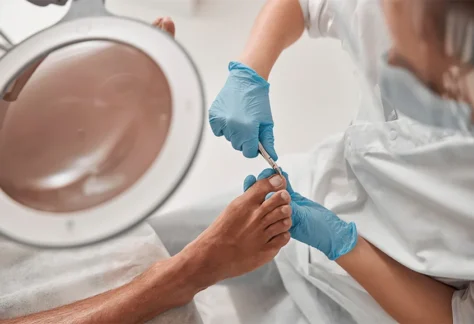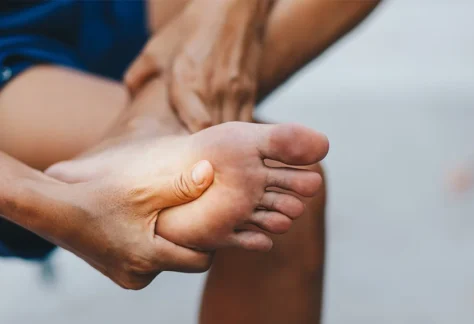In This Article:
- Depression is categorized by chronic, persistent sadness. Anxiety is categorized by chronic, persistent anxiousness. These two conditions are the most common mental disorders in America.
- Common triggers that contribute to the effects of anxiety and depression include life changes, death, loss, trauma, isolation and other stressful situations.
- Treatment options for both anxiety and depression include taking antidepressants, attending therapy and counseling or utilizing a combination of the two.
Despite the two conditions often overlapping, the effects of anxiety and depression are quite different. Let’s explore the causes and symptoms of the two most common mental health disorders in America, as well as the many forms of effective treatment available.
To learn the differences between anxiety and depression, we’ll compare the characteristics of each.
What is Depression?
Depression is a brain disorder that leads to ongoing episodes of sadness. About 15 million Americans experience clinical depression, which is more than 7% of the population. It’s more serious than feeling down for a day or two, as this chronic condition can persist for decades at a time.
Causes and Effects of Depression
Depression is technically a chemical imbalance in the brain, but we don’t know exactly what causes it. Genetics plays a significant role, though. If depression already runs in your family and you encounter certain stressors, this may trigger a depressive episode. These stressors could include:
- Death
- Loss of job
- Isolation
- Divorce
- COVID-19
- Stress
If you are concerned that you or a loved one may be suffering from a depressive disorder, keep an eye out for the following symptoms:
- Loss of enjoyment
- Decrease in appetite
- Insomnia
- Fatigue
- Pessimism and hopelessness
- Suicidal thoughts
Remember that everyone goes through bad days and tough times, so it can sometimes be difficult to distinguish everyday sadness from a true case of depression. Psychiatrists will rely heavily on your family history and personal records to form a diagnosis.
How to Treat Depression
Treatment for chronic depression comes in a variety of forms, including:
- Counseling, psychotherapy and talk therapy
- Medications, called antidepressants
- A combination of both, which is usually most effective
We’ve come a long way in the treatment and destigmatizing of depression. Today, there are more than 30 types of antidepressants on the market, as well as various forms of therapy. This allows psychiatrists to choose the treatment method that best suits their individual patient.
How to Prevent Depression
Although sometimes it’s impossible to stop an onset of depression, there are a few things you can do on your own to lessen the symptoms and keep your brain more chemically balanced.
- Maintain a healthy diet
- Exercise often
- Practice stress management, especially in the workplace
What Is Anxiety?
Anxiety is another brain disorder that often co-occurs with depression. Everyone feels nervous occasionally, but the effects of anxiety disorders go beyond everyday worries. The condition is categorized by a daily or weekly pattern of phobias, panic attacks and, in some cases, post-traumatic stress disorder. More than 40 million Americans suffer from some type of anxiety disorder, making it the most common mental illness in the United States.
Causes and Effects of Anxiety
Individuals with a history of isolated and repeated trauma have a higher risk of developing anxiety, especially military personnel and those who were abused as children. Like depression, certain stressors like loss, stress and big life changes — plus uncertain or high-pressure situations — can trigger anxiety attacks.
If you are concerned that you or a loved one may be suffering from an anxiety disorder, keep an eye out for the following symptoms:
- Constantly feeling restless or tense
- Having a sense of impending danger
- Increased heart rate
- Hyperventilation
- Sweating
- Feeling weak or tired
- Trouble concentrating
Depression and anxiety are diagnosed similarly. There is a fine line between being anxious and having an anxiety disorder, and it takes thorough evaluation for psychiatrists to effectively form a diagnosis and treat it accordingly.
Anxiety Treatment
The treatment methods for anxiety disorders are almost identical to those of depression.
- Medications, like antidepressants, are used to treat anxiety disorders, as well.
- Psychotherapy helps patients find the root of their problems and make peace with their past.
- A combination of both forms of treatment is, once again, most effective.
You can also ease your anxiety on your own by performing breathing exercises, meditating and minimizing your caffeine and alcohol intake.
Recognize the Symptoms
Now that you know what the difference between anxiety and depression is, it will be easier to recognize the warning signs in yourself and your loved ones. Remember that both diseases are quite common, and it’s likely that you or someone you know has been affected by them. However, they are treatable. You can feel confident knowing that the effects of anxiety and depression can be managed with the right therapy, medication and support.








